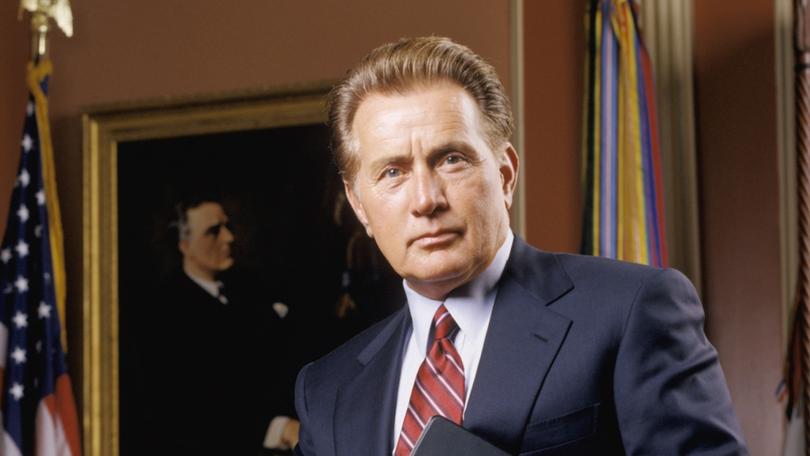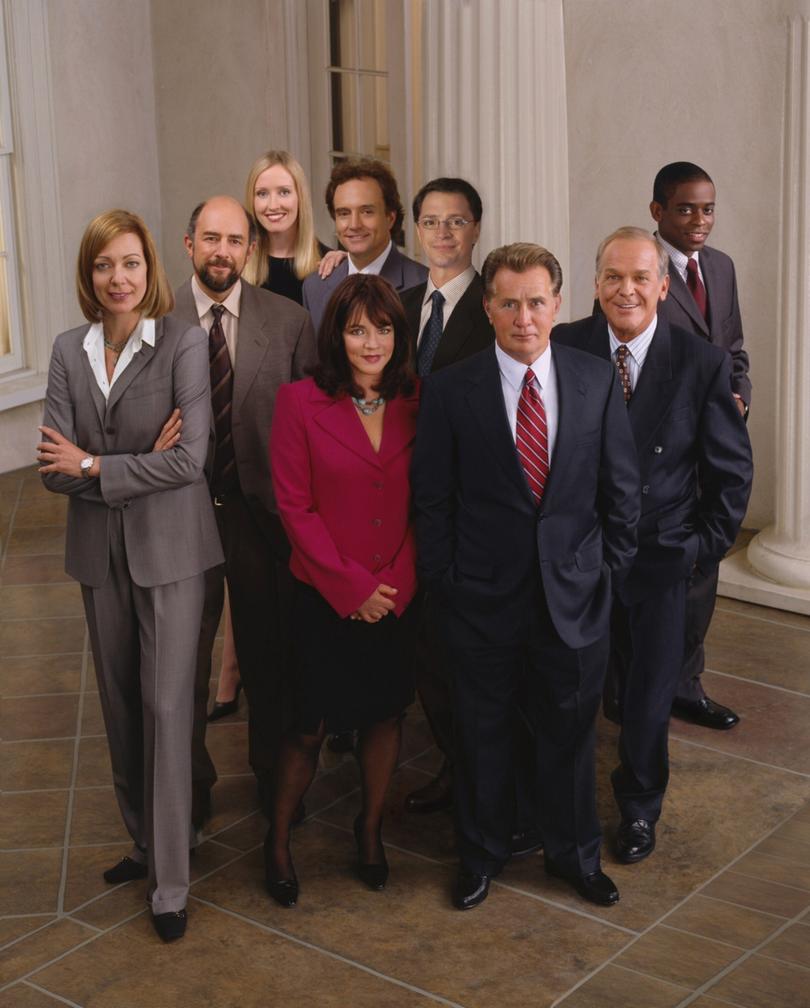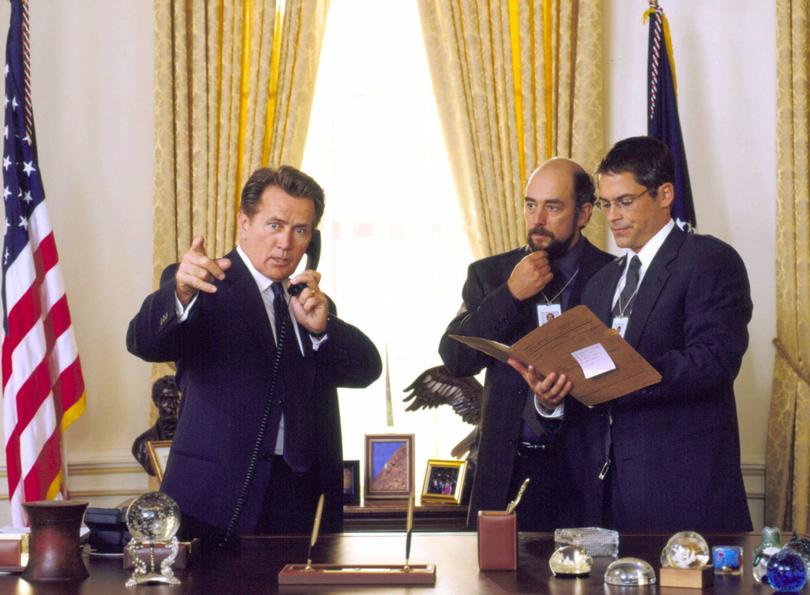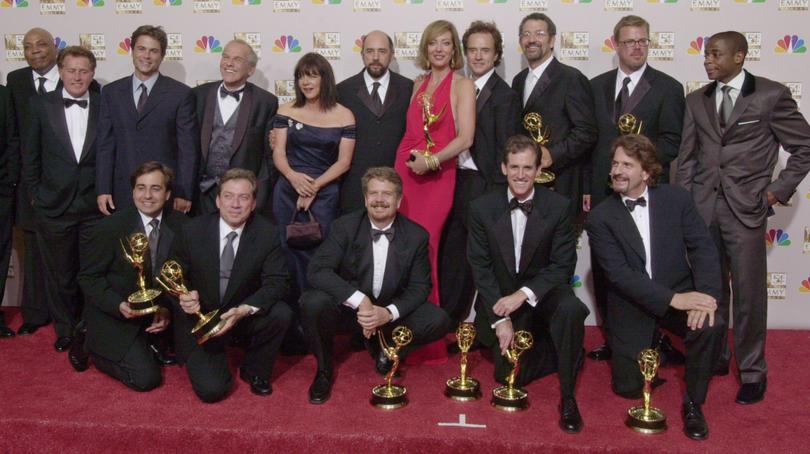The West Wing is not a nostalgic pipe dream, it’s an urgent call to arms
The West Wing marks its 25th anniversary this weekend and rather than a nostalgic pipe dream, it’s a rallying cry to demand better.

There are many things objectionable about vice presidential candidate J.D. Vance’s “childless cat ladies” screed.
Aside from the obvious misogyny of it, it also reveals a fundamental philosophy that underpins Vance’s beliefs, one shared by his bosses, Donald Trump and Peter Thiel. It’s the “what’s in it for me?” mentality.
Vance contends that people, women specifically, who don’t have children have no skin in the game, and that you could only invest in the future if it’s in your self-interest to do so. It’s a particularly nasty tenet of individualism. Where’s MY tax cut? Why should I pay for THEM?
Sign up to The Nightly's newsletters.
Get the first look at the digital newspaper, curated daily stories and breaking headlines delivered to your inbox.
By continuing you agree to our Terms and Privacy Policy.What happened to doing good because it’s the right thing to do? As much as certain politicians exploit the divisions between us versus them, we all share in this pale blue dot and what happens to it. People don’t have to be motivated purely by the transactional.
Much has been written and said about the Pollyanna political world of The West Wing, which marks its 25th anniversary this weekend. There will even be a celebration at the actual White House tomorrow, hosted by First Lady Jill Biden.

The series was created by Aaron Sorkin, ostensibly as something of a do-over of the Clinton administration, a wish-fulfilment fantasy of what a progressive government might have achieved if it hadn’t been repeatedly distracted by the president’s libido.
Even then, before America’s political discourse had devolved to pantomime and farce, The West Wing wasn’t a realistic portrayal of government. But it was an ideal, of both what public service could be and the aspirations of television as an art form.
It ran for seven seasons and dealt with everything dramatic and mundane, spanning assassination attempts and kidnappings to debating the merits of the census. The West Wing was the greatest defender of the process of government while injecting poetry into its purpose.
The ensemble cast of characters – the intellect of President Josiah Bartlet (Martin Sheen), the righteous passion of Toby Ziegler (Richard Schiff), the curiosity of C.J. Cregg (Allison Janney), the idealism of Sam Seaborn (Rob Lowe), the humanity of Leo McGarry (the late John Spencer) among others – is a beacon in our far more confusing times.
Does the show still hold up 25 years later? Sorkin himself has said that you wouldn’t be able to recognise the Republican characters the series showcased, which included presidential candidate Arnold Vinick (Alan Alda), who was modelled in part after John McCain, or lawyer Ainsley Hayes (Emily Procter), in today’s political climate.

Hayes and Vinick didn’t agree with the core characters on issues including the Equal Rights Amendment but everyone was united by their sense of duty – and, yes, all the Gilbert and Sullivan operas are about duty.
It’s civic service that drives the characters, most of whom don’t have children. You don’t need to have birthed kids to take part in the collective goal to strive for better, to do better, to be better.
President Bartlet once said, “If fidelity to freedom and democracy is the code of our civic religion, then surely the code of our humanity is faithful service to that unwritten commandment that says we shall give our children better than ourselves received.”
He’s not talking specifically about Zoe, Eleanor and Liz, his three daughters, but about all children. He’s talking about the next generation and the one after that and the one after that.
Those words sing with the power of our better angels, and if you listen to them, really hear them, it’s enough to make you giddy with joy and be moved to tears. The show is packed with lines of dialogue just like the above.
It’s easy to be jaded and defeated by politics in 2024. It is far removed from the pre-9/11 days of when The West Wing premiered. But rather than a relic of a nostalgic and naïve past, it’s even more relevant now a quarter century on because it reminds us of what’s possible.

When you rewatch the show, it’s a rallying cry that we must demand better. That real leadership is attainable, that competence should be the minimum, that collective interest must be placed above self-centred individualism, and that power is a means to an end, not the end.
Sorkin told The New York Times this week that what he finds gratifying is when he reads that someone was inspired to join the public service because of The West Wing. It wasn’t his goal, which was to make entertaining TV.
“So when people say that they were inspired to public service because of the show, it’s incredibly meaningful,” he said.
He added that there has been a propensity for commentators to use the term “a West Wing moment” to describe “an unrealistically high expectation of character triumphing over selfishness”.
Sorkin lamented that in the real world, there are no West Wing moments, but gave one recent example.
“I believe that the morning Biden stepped out of the race, that was a West Wing moment. That’s the kind of thing we write stories about.”

